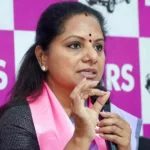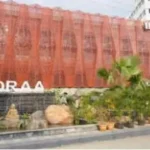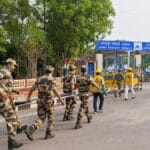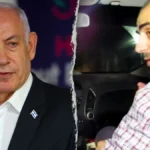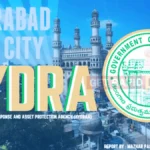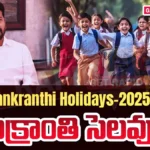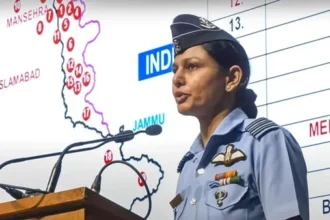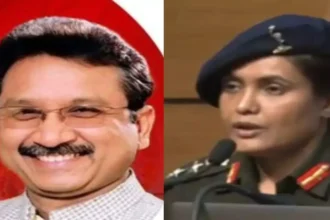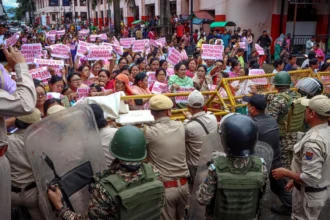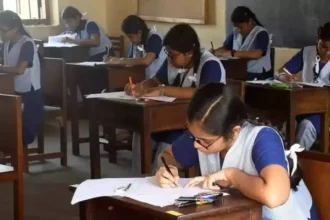Manipur Violence talks between the Meitei and Kuki-Zo communities ended without a resolution, marking a tense beginning to what may be a long negotiation process.

Imphal: On April 5, the Ministry of Home Affairs (MHA) organized a peace summit in New Delhi where members of the Kuki-Zo and Meitei communities gathered together for the first time since ethnic violence started on May 3, 2023. Nevertheless, there was no consensus reached at the end of the meeting.
Manipur Violence talks negotiations brought together key representatives from both communities, with six delegates from the Federation of Civil Society Organizations (FOCS) and the All Manipur United Clubs’ Organization (AMUCO) representing the Meitei side. On the Kuki-Zo side, eight members from the Zomi Council and the Kuki-Zo Council participated. The talks were mediated by Ministry of Home Affairs officials, including Northeast advisor A.K. Mishra, Manipur Chief Secretary P.K. Singh, and Additional Director General of Police Ashutosh Kumar.
The meeting’s primary goal was to make a peace appeal. The MHA asked civil society organizations (CSOs) from both groups to sign a draft that included a number of demands. People who attended the conference told The Wire that the draft’s main elements were prioritizing the construction of roads and infrastructure, allowing free movement on all highways, and facilitating the transit of necessities.
Meitei CSOs said they were willing to sign the draft, while Kuki-Zo CSOs declined.
‘COCOMI didn’t appear’
Manipur Violence talks discussions faced a setback, according to Henlianthang Thanglet, chairman of the Kuki-Zo Council. Speaking to The Wire, he stated, “From the Meitei side, only AMUCO and FOCS came, but COCOMI didn’t appear, which allows them to violate the rules. From the Kuki side, we were all present.” The absence of key stakeholders highlights ongoing challenges in resolving the Manipur Violence talks crisis through dialogue.
One of the most significant Meitei civil society organizations in Manipur is the Coordinating Committee on Manipur violence talks Integrity, or COCOMI, which has been working in the valley to aid camp residents since the conflict began.
The Delhi peace conference has drawn harsh criticism from the organization, which claims it was a phony ploy to validate Union Home Minister Amit Shah’s claim in parliament that the Manipur situation was only a “ethnic conflict.”
The group described the talks as a front to deflect attention from the conflict’s core causes, which they believe are the Union government’s failure to uphold law and order and address the underlying causes of the violence, as well as its support of Chin-Kuki narco-terrorist groups under the Suspension of Operations (SoO) agreement since 2005.
Manipur Violence Talks Criticized as Political Stunt Amid Demands to Scrap SoO Agreement
COCOMI has criticized the peace negotiations as a publicity stunt that was timed to coincide with the Union home minister’s statement in parliament and accused the Union administration of playing partisan politics instead of serving as an impartial peace broker.
The Kuki group has called for the SoO agreement to be revoked, responsibility for territorial occupation and highway blockades, and tough measures against separatist threats like “Kukiland” and “Zalengam.”
COCOMI has also called for a terror-free environment in Manipur violence talks , before any genuine dialogue can begin.
“The government should implement the National Register of Citizens in Manipur,” COCOMI spokesperson Khuraijam Athouba told The Wire. Since identifying illegal immigrants is the best way to move forward, everyone should be on board.
Kuki-Zo representatives were disappointed by COCOMI’s absence at the meeting and stated that it was one of the main reasons this discussion should not continue.
‘Free movement’
Thanglet said, “Yes, we are fine with the other demands,” in response to the question of whether the Kuki-Zo’s sole opposition to the list of demands was related to the clause on the free movement of people. In any case, with President’s Rule, Manipur is already experiencing the free flow of necessities and other items. We were also not prepared for any commitment because important Meitei organizations were not present.
Manipur Violence talks remains a sensitive issue, according to Henlianthang Thanglet of the Kuki-Zo Council, who expressed opposition to the idea of unrestricted movement. He emphasized that the people of Manipur “have not yet healed from what they lost during the past two years of violence,” and warned that the situation is “still sensitive.”
The MHA was also asked by the Kuki-Zo Council to enforce the Armed Forces (Special Powers) Act (AFSPA) throughout the whole Manipur area. They maintained that only by fully enforcing AFSPA would central paramilitary forces be able to seize total authority and replace what they characterized as an inefficient and biased local government.
Manipur Violence talks prompted multiple efforts by the Ministry of Home Affairs (MHA) to initiate dialogue between key stakeholders. In October last year, the MHA convened a meeting with Meitei, Kuki-Zo, and Naga MLAs from the state. However, Kuki-Zo MLAs later clarified that they met with MHA officials separately and did not engage directly with representatives from the other communities, underscoring the deep divisions caused by the ongoing Manipur Violence talks .


